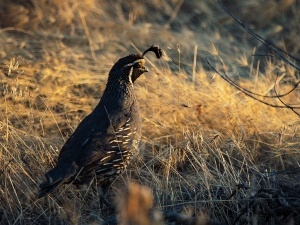
Many homesteaders will choose to raise chickens on their property but some will choose to raise quail, one of these people may be you.
If this is you, then you may notice some strange behavior in your birds, strange behavior like your quail shaking. This article looks into why your quail may be shaking.
Table of Contents
Why is my quail shaking?
There are many benefits to keeping quail, these birds are adorable little birds who are lovely to be around.
These birds also produce some delicious eggs, but, just as with any other bird, these birds can exhibit strange behavior, like shaking.
Here is why your quail may be shaking:
The bird is cold:
One of the simplest reasons why your bird may be shaking is that the bird is cold
Your quail usually maintains its body temperature via its feathers. Air becomes trapped between the bird’s feathers and the bird’s skin when heat is released by the bird, this is how the bird is kept warm.
However the feathers can only do so much, if your bird gets too cold then it will start to shiver to keep warm.
When cold, the bird will involuntarily start to shiver, this rapid repeated movement will result in heat being produced and released by the bird and this will keep the bird warm.
This may be what is going on with your bird.
What to do:
If the bird is too cold then you may want to winterize the bird’s cage to keep the bird warm.
To do this, cover the roof and the sides of the bird’s wire cage, this will help to keep draft out and help to keep the bird warm.
You can also cover the floor of the bird’s cage with bedding, this will keep the bird’s feet from getting too cold when they touch the floor.
Doing this will help to keep the bird from losing too much heat from its feet.
Giving the birds fattening, but still healthy, foods is also recommended, this will get them to gain weight which will help to insulate them.
Give your quail cracked corn and sunflower seeds, these foods are calorie dense.
Encephalomyelitis:
Another reason why your bird may be shivering may be that the bird is suffering from a disease called avian encephalomyelitis.
This is a viral condition that affects a variety of birds including turkeys, chickens, pheasants, and quail.
The condition causes a variety of symptoms to develop in your bird including tremors at the bird’s limbs, neck, and head, this may be what you’re seeing in the bird shaking.
Other signs of this condition in your bird include paralysis, ataxia, depression, and a dull expression in the bird’s eyes.
Birds catch this disease if they come into contact with infected feces. It can also be passed on vertically from the mother through the egg to the baby bird.
What to do:
Because this condition is contagious you should start off by isolating the affected bird. Give the bird its own food and water during isolation.
Once your bird has been isolated it is recommended that you take your quail to the vet to get a diagnosis.
Unfortunately, there is no treatment for this condition and infected birds rarely recover, the birds usually become paralyzed and can’t eat or drink and will eventually die because of this condition.
If you enjoyed this article then you may also be interested in other bird related articles. Here are some articles that you may be interested in: Baby Quail Laying On Back, Quail Acting Drunk, Quail Acting Strange, Do Quail Spit?, Turkey Chick Vs Chicken Chick, Baby Quail Can’t Walk, Baby Chick Won’t Put Weight On Leg, Quail Vs Chicken Raising, Newly Hatched Chick Not Moving

